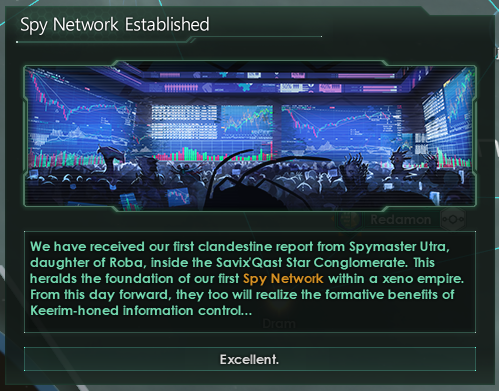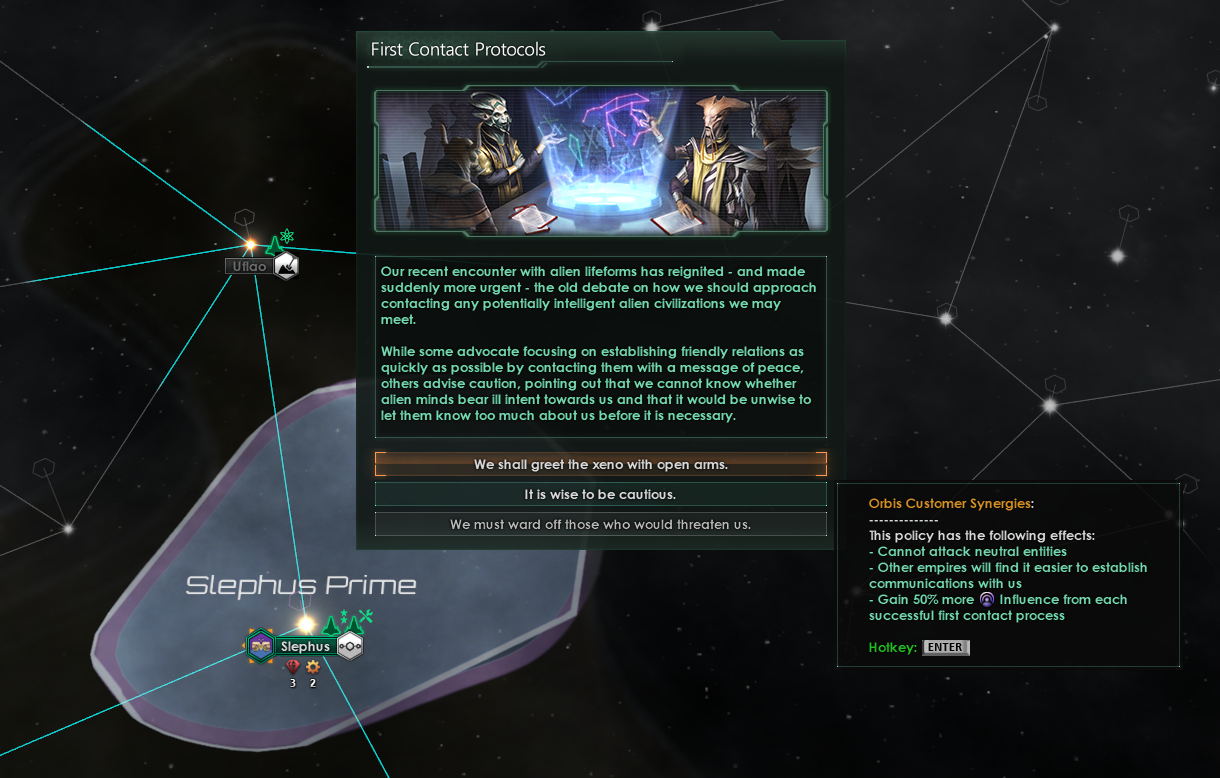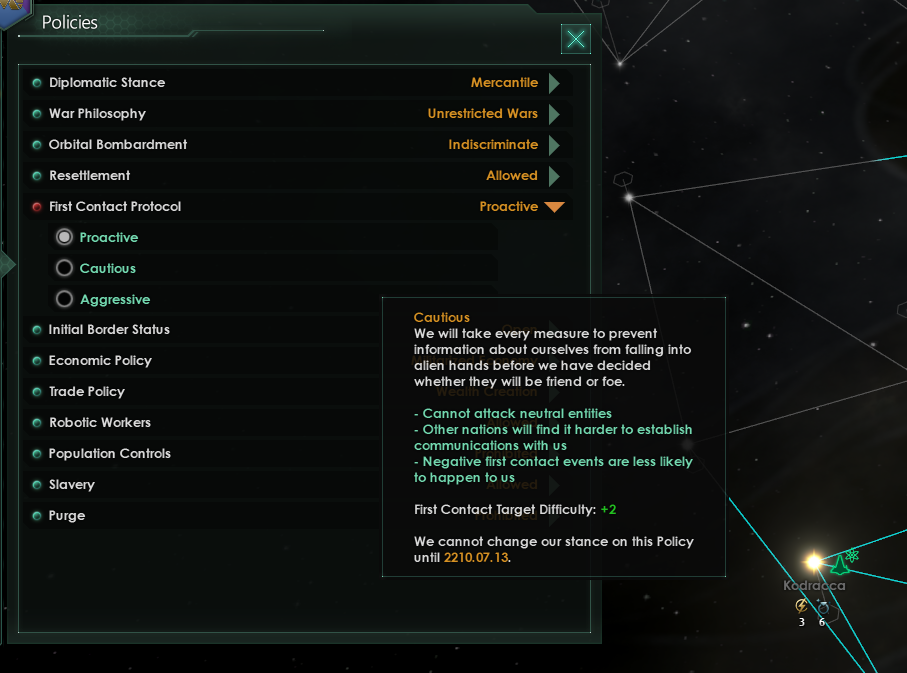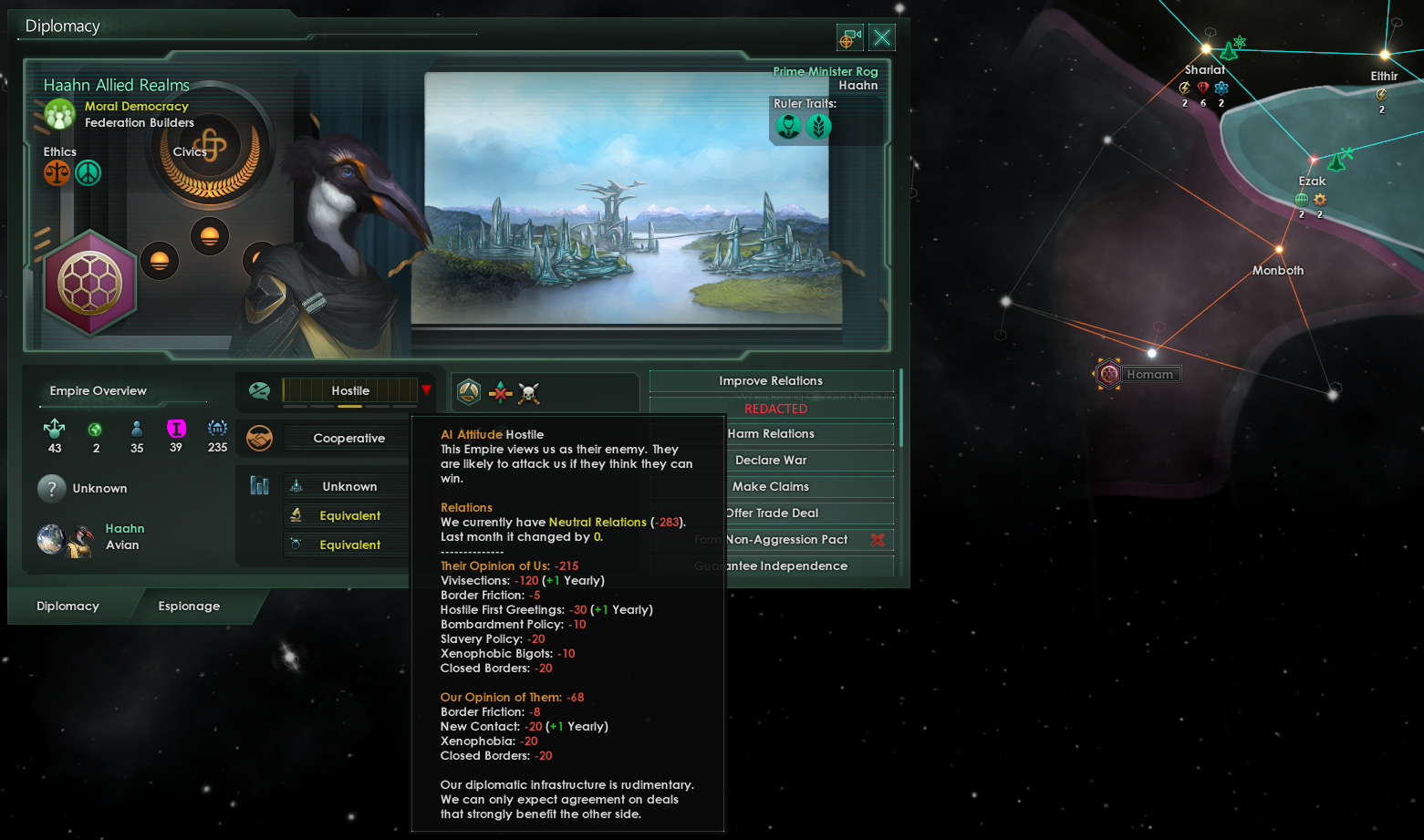Stellaris Dev Diary #196: [REDACTED]
Attn: Spymaster Utra, daughter of Roba,
Our operatives have provided information on the activities of the vile Paradoxians. Despite their attempts at secrecy, we have managed to acquire some intel. The images our agents have taken appear to be of crude prototypes that they are still refining, but we thought it best to pass this dispatch along now so you can better prepare for the future.
Agent Tiny Sorbet signing off.
-‚ا© ŘŮ æ¢Ã£»£æ¢Ã -•
Hello and happy new year!
In Dev Diaries 193 and 194 we explored the mysteries of first contact, hidden information, and intelligence gathering through diplomatic means.
It may come as a surprise to many, but sadly there are starfaring civilizations out there with whom peaceful co-existence and mutually beneficial diplomatic ties are simply not an option. Against these threats, it may prove useful to utilize the more intrigue-oriented members of your society, and turn to espionage.
Espionage and covert operations are a frequently requested feature that seem to be natural extensions of the intel system that we’ve described in the recent dev diaries. With the obfuscation of knowledge, naturally there should be systems to acquire that information.
[h3]Envoys and Spy Networks
[/h3]
Envoys will have a new diplomatic task available to them called Build Spy Network. They will take their place as the Spymaster of a network of covert operatives and agents that they will grow in power over time. Needless to say, the other empire will not be informed of your envoy's new position.
 Build Spy Network diplomatic action
Build Spy Network diplomatic action Baby steps.
Baby steps.While an envoy is managing a Spy Network as Spymaster, the Network will grow over time - quickly at first, but slower as the Network gains in strength. Networks are far faster to build in large, sprawling empires, and if the target empire’s Encryption rating is much stronger than the spying empire’s Decryption, growth may also slow to a crawl. (Machine Intelligences have a natural knack for Encryption and Decryption, while Hives and psionic empires tend to excel at Counter Espionage.)
Unmanaged Spy Networks (those without an envoy directing them) pause all ongoing activities and rapidly decay.
Spy Networks initially cap out at a maximum level of 50. Several things such as civics or edicts can increase it, and if you have acquired (disposable) Assets within the target empire they also provide a boost - each Asset increases the Spy Network cap in that empire by 5.
Assets are useful pawns, hacked backdoors, deviant drones, or other resources that could come in useful to your Spy Network. An Asset could be a disgruntled Bureaucrat that's been passed over promotion one too many times, a faulty Pheromone Emitter that your operatives have found a way to manipulate, or even a Logistics System that you've hacked into. More details about the acquisition of Assets and their uses will be in a future diary.
[h3]Changes[/h3]
Here’s a non-comprehensive sample of some civics, ascension perks, and edicts that have been updated during this espionage pass. Several new Encryption and Decryption related technologies have also been added. (Numbers are still subject to change!)

 Some civics lend themselves nicely to covert activities.
Some civics lend themselves nicely to covert activities.

Others can modify Counter Espionage, making the lives of enemy Spy Networks easier or more difficult.
 Tell us your secrets.
Tell us your secrets. No, really.
No, really.
 More of the new Edicts.
More of the new Edicts.[h3]Putting Your Spies to Work[/h3]
Now that you’ve built up your Spy Network, what can you do with it?
Back in Dev Diary 194 we had a redacted value shown in the Intel breakdown tooltip - Spy Network level is that third hidden value alongside Diplomatic Pacts and Trust.
 No more redactions here.
No more redactions here.While your Spy Network passively provides intelligence, you can also have them be more active. Your Spymaster envoy can send agents out, using the Network's bandwidth ("Spy Power") to run Operations within the targeted empire while they stay safely at their base.
Operations exist in the following major categories:
- Subterfuge - Information gathering and operations that improve the spy network itself
- Sabotage - Ruining things (physical or immaterial)
- Manipulation - Replacing the truth with your own improved version
- Provocations - Don't do these, they're bad
Most Operations also have a subcategory of Government, Diplomacy, Economic, Technology, or Military, matching the Intel Categories.
More details on how to perform Operations (and how Assets can be used to improve them) will be the focus of next week’s diary. See you then!

 Work in progress. Game development is fun, and sometimes during development, unintentional circumstances can occur.
Work in progress. Game development is fun, and sometimes during development, unintentional circumstances can occur. 
 The information on the empire to the galactic south-east is very limited. We can see their homeworld and the borders explored by our science ship.
The information on the empire to the galactic south-east is very limited. We can see their homeworld and the borders explored by our science ship. An alien empire recently established communications with us. Friends..?
An alien empire recently established communications with us. Friends..? Depending on things like diplomatic pacts, trust or other things, your Intel will grow over time.
Depending on things like diplomatic pacts, trust or other things, your Intel will grow over time. Intel, now in the scent of working from home for months.
Intel, now in the scent of working from home for months.



 First Contact Protocol Policy options.
First Contact Protocol Policy options.






 Let’s agree to disagree.
Let’s agree to disagree.